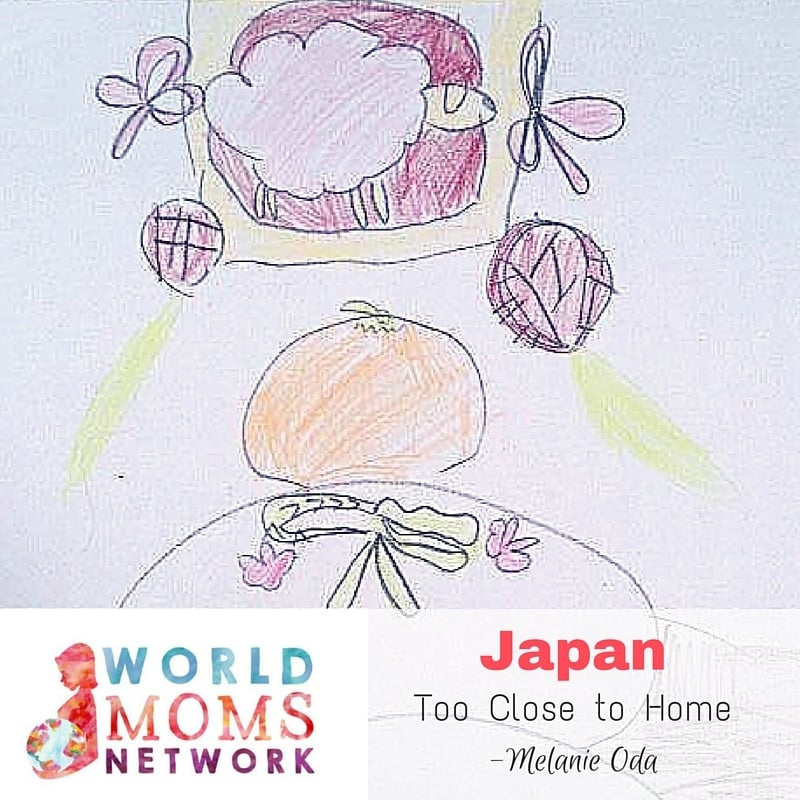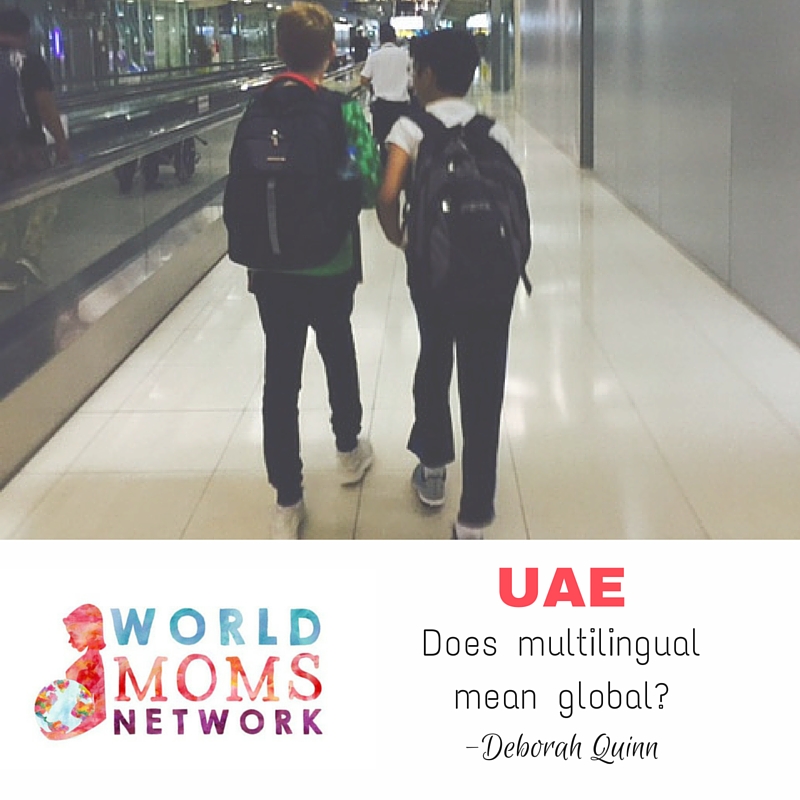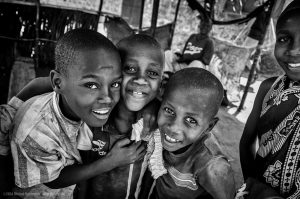by Maryanne W. Waweru | Sep 1, 2016 | 2016, Africa, Africa and Middle East, Babies, Being Considerate, Culture, Kenya, Marriage, Pregnancy, Relationships, World Motherhood

There’s a reality that’s been gnawing at me for a long time. I’m talking about the pressures that face women – unwanted pressures from society.
As soon as you hit the age of 25, people start asking, “When will you get married?” After your wedding they will ask, “When is ‘our’ firstborn arriving?” If your firstborn child is a baby girl, they will ask, “So when are you giving ‘us’ a boy?” And if your firstborn is a boy, they will ask you, “When are you giving ‘us’ a second child?” Even if you are lucky enough to give them all of that, they will demand a third, fourth and fifth child, because you must give them a namesake. In my African culture, we name our children after our relatives. It is a great honor to have a child named after you. Therefore, every relative will constantly put pressure on you to have more children so that you can give them a namesake.
In my country, there is a certain celebrity news anchor who recently married an equally famous gospel musician. The wedding was in December of last year, just eight short months ago. Since then, the public has been DEMANDING that the lovely couple give them a child. The public reacted horribly when the woman recently shared an old photo of herself on social media. It was a throwback photo of herself as a teenager in high school, reminiscing of the good times she had in her youth. The photo somehow made it to a popular online entertainment and gossip site, and the comments that followed the post were shocking.
“Stop showing us photos of your past, we want to see photos of you pregnant!” the commentators yelled.
“So now you are showing us photos of when you were a girl? Why not of now? Are you trying to hide something? Are you barren?” another asked.
“Give your husband a child now otherwise he will go looking elsewhere,” another said.
“If you’re having problems getting pregnant, inbox me. I’ll sort you out,” another offered.
Hundreds of comments followed, all of a similar nature.
It made me sad. Why does society put so much pressure on people? On couples? On women? What if the couple is not able to have a child? Or if they have been trying, unsuccessfully? What if they have suffered pregnancy loss – something they may not want to openly talk about? Or if they do not even want a child in the first place? Is it the public’s business? Society’s business? Their relatives’ business? Or is it between the husband and wife?
Seriously, as women, we have a lot to deal with, and we do not need societal pressure adding to our nightmares. Unfortunately, that is exactly what we face. In a society where a woman’s worth is valued by her reproductive prowess, it is indeed sad. In my culture, a woman may have achieved many notable feats and broken the glass ceilings over her head, but if she is not married (or, even worse, does not have a child), then she may just be nothing. Society will be harsh on her. That is, if they even recognize her.
But you know what else is interesting? Who is this society that we are talking about? Who are these people?
It is you and me. Us. We are the society. We are the same people who, when we meet a friend who got married over a year ago, will, while shaking her hand, be staring at her belly, trying to catch a glimpse of how swollen it is. Or whether it is swollen at all. Sometimes we do it consciously, sometimes we don’t even notice we are doing it. It just comes naturally. And then we talk with our other girlfriends saying “Lucy is not getting any younger, I wonder when she’s planning to start having babies.” That’s the pressure I’m talking about.
We all need to be a lot more sensitive to what fellow women go through. I hope you and I can make the difference.
This is an original post for World Moms Network by Maryanne W. Waweru of Mummy Tales in Kenya.
Photo courtesy of Frank Douwes / Flickr.
Maryanne W. Waweru, a mother of two boys, writes for a living. She lives in Nairobi, Kenya with her family. Maryanne, a Christian who is passionate about telling stories, hopes blogging will be a good way for her to engage in her foremost passion as she spreads the message of hope and faith through her own experiences and those of other women, children, mums and dads. She can be found at Mummy Tales.
More Posts - Website

by Kirsten Doyle (Canada) | Aug 25, 2016 | Culture, Expat Life, Global Citizenship, Identity, International, Living Abroad, Relocating, South Africa, The Americas, Travel, World Motherhood
 In 2000, I packed my life into checked baggage and travelled from Johannesburg to Toronto. I left behind my family and friends, my cat, most of my belongings, and everything that I was familiar with. All I had was two suitcases, a job offer, and a street map of a city I knew very little about.
In 2000, I packed my life into checked baggage and travelled from Johannesburg to Toronto. I left behind my family and friends, my cat, most of my belongings, and everything that I was familiar with. All I had was two suitcases, a job offer, and a street map of a city I knew very little about.
Sixteen years later, Toronto is my home. I am a Canadian citizen with a Canadian husband and Canadian children.
I have made friends, paid taxes and acquired some belongings. I have worked for Canadian employers and started my own business. When I travel, it is with a passport that says “Canada” on the front.
And yet there is a part of me that is still firmly rooted in South Africa. I follow news stories from South Africa and celebrate the victories of its people. I take immense pride in the fact that I was born in the same country as people like Nelson Mandela and Caster Semenya.
You see, even though I made the choice to leave South Africa, and even though I now identify as a Canadian, South  Africa will always be the land of my birth and a part of who I am. Although my children have never left the continent of North America, African blood runs through their veins.
Africa will always be the land of my birth and a part of who I am. Although my children have never left the continent of North America, African blood runs through their veins.
When the world looks at South Africa, it sees a deeply troubled country with corrupt politics and a high crime rate. But South Africa is made up of more than its problems. It is unlikely to ever be an economic or political powerhouse on the world stage, but it is great in its own way.
I try to keep these things alive in my children’s lives through stories, pictures and videos. Thanks to the Internet, I can bring parts of South Africa right into my living room in Canada. It is my hope that someday they will get to experience these things in person, just as I did during a visit last year.
 Here is my top five list of things that I feel make South Africa a unique and wonderful country.
Here is my top five list of things that I feel make South Africa a unique and wonderful country.
- The people. When you see news coverage of South Africans trashing city streets and destroying schools, you are seeing the minority. Most South Africans are very nice people. Their friendliness has a spontaneous quality that is not seen in a lot of other places. They don’t hold back on their smiles, and when they say “Have a nice day” they genuinely mean it. South African people are incredibly generous with their good cheer.
- The natural beauty. South Africa is one of the most stunningly beautiful places on earth. Pictures do not do justice to the wildness of the oceans, the harsh beauty of the Karoo desert, the brilliance of Cape Town sunsets, and the majesty of the mountains.
- The weather. OK, Cape Town weather is a little iffy, but you can’t really expect anything else from a city that has mountains on one side and ocean on the other. The weather in Johannesburg, however, is as close to perfect as you can get. Hot dry temperatures in the summer, and mild temperatures in the winter. The summers also include magnificent thunderstorms. I’m not talking about the odd bolt of lightning or rumble of thunder. I’m talking about nature’s own sound and light shows.
- Unity. At times, South Africa is sharply divided along racial lines, with the different ethnic groups all blaming each other for the problems in the country. But during some pivotal moments in South Africa’s history – the release of Nelson Mandela from prison, South Africa’s first democratic election, the rugby World Cup victory and more – the people have come together under the single banner of humanity. It is the kind of unity that is not only seen in pictures, it is felt in the heart. It is during those moments that the country is at its strongest.
- Dance and music. I absolutely love traditional African dance and music. It does not merely entertain, it tells a story. It is powerful and creative, and it beats to the rhythm of your heart. I can’t copy the dance moves or sing along to the music, but I can bask in the emotion and humanity of it.
 What are the things you love most about your country? If you are an ex-pat, what do you miss most from home?
What are the things you love most about your country? If you are an ex-pat, what do you miss most from home?
This is an original post to World Moms Network by Kirsten Doyle of Toronto, Canada.

Kirsten Doyle was born in South Africa. After completing university, she drifted for a while and finally washed up in Canada in 2000. She is Mom to two boys who have reached the stage of eating everything in sight (but still remaining skinny).
Kirsten was a computer programmer for a while before migrating into I.T. project management. Eventually she tossed in the corporate life entirely in order to be a self-employed writer and editor. She is now living her best life writing about mental health and addictions, and posting videos to two YouTube channels.
When Kirsten is not wrestling with her kids or writing up a storm, she can be seen on Toronto's streets putting many miles onto her running shoes. Every year, she runs a half-marathon to benefit children with autism, inspired by her older son who lives life on the autism spectrum.
Final piece of information: Kirsten is lucky enough to be married to the funniest guy in the world.
Connect with her on Facebook, Twitter and Instagram.
Be sure to check out her YouTube channels at My Gen X Life and Word Salad With Coffee!
More Posts
Follow Me:




by Melanie Oda (Japan) | Jul 27, 2016 | Asia, Cultural Differences, Culture, Grandparent, Japan, Siblings, Uncategorized
It started out innocently enough. Perhaps because she was the younger child, the second grandchild, her Japanese family just didn’t seem as interested in her as in her older brother.
I thought perhaps since they only had sons, or that my mother-in-law only had brothers, they were not sure how to interact with a small girl.
I suggested things that she liked to do, bring over toys she likes to play with so they could interact. (This resulted in my brother-in-law developing an iron-beads addiction, but had no impact on the grandparents at all.)
Then there were subtle things: talking over her, not listening, not answering when she asked a question. Some people are just like that to children, I thought, though I knew in my heart they hung on every word my son said.
“She is talking, too, let’s listen!” I try to draw attention to her.
Then they joined in the cacophony of voices around us, “Girls don’t sit like that. Girls complain too much.”
“It isn’t only girls,” I try to laugh it off.
We would go their house, and they would put out only one cookie, even though there were two children. “We didn’t think that she would want one.”
I make the children share, or I go to the store for another ice cream or bottle of juice.
She received only half the amount of money at New Years for otoshidama (a cash gift given to children from relatives,) and was specifically told it was because she was a girl. “You must have heard wrong,” said my husband.
When we went home, I made the children pool the money and split it evenly.
Then this year on Children’s Day, we arrived at the in-laws house to find a beautifully wrapped present.
One present.
My heart sank because I knew. I knew that now she would know; that I couldn’t cover it up this time. There was no misunderstanding. This wasn’t a snack brought home on a whim, or an envelope that looked the same on the outside but was different within. This was a gift that had been searched for, lovingly wrapped, put in a place of honor for all to see on a day to honor our children.
But it wasn’t for her.
I saw her eyes dazzle in excitement, dart in confusion, then steel over with resignation. Her big, brown eight-year-old eyes.
She didn’t say anything, she didn’t cry at the injustice, until we were at home.
“Why is he more important than me?” she asked.
The simple truth is that they are both important. The sad truth is that there are people out there who refuse to acknowledge that, who treat these two children that I love equally with all of my heart in a very unequal way.
I wish sometimes they weren’t so close to home.
I can see that it is damaging to have that dynamic in our extended family, against the backdrop of a world that is unkind to women (to put it lightly.)
In the moment, I decide against explaining to my little girl that the cards, in many ways, are stacked against her. Instead I hold her close and tell her that all children are important, and anyone who thinks otherwise is wrong.
Have your children experienced instances of sexism? How do you talk about it at home?
This is an original article by World Mom, Melanie Oda.
If you ask Melanie Oda where she is from, she will answer "Georgia." (Unless you ask her in Japanese. Then she will say "America.") It sounds nice, and it's a one-word answer, which is what most people expect. The truth is more complex. She moved around several small towns in the south growing up. Such is life when your father is a Southern Baptist preacher of the hellfire and brimstone variety.
She came to Japan in 2000 as an assistant language teacher, and has never managed to leave. She currently resides in Yokohama, on the outskirts of Tokyo (but please don't tell anyone she described it that way! Citizens of Yokohama have a lot of pride). No one is more surprised to find her here, married to a Japanese man and with two bilingual children (aged four and seven), than herself. And possibly her mother.
You can read more about her misadventures in Asia on her blog, HamakkoMommy.
More Posts
by Mannahattamamma (UAE) | Jun 30, 2016 | Africa and Middle East, Brothers, Competition, Cultural Differences, Expat Life, Global Citizenship, Living Abroad, Middle East, Older Children, School, Travel, UAE, World Motherhood

When we moved to Abu Dhabi from Manhattan five years ago, we intended to stay in “the Dhabs” for a year. Our kids had scored the Manhattan Grail: spots in a “gifted and talented” public school, which meant we wouldn’t have to sell everything we owned to pay for private school, and if we stayed away from the city for more than a year, we would lose the seats.
“But you have two spots at the school,” people said to me when I told them we were leaving. To ease their doubts, I kept talking about the benefits of an international education and experiencing different cultures–but to tell the truth, I think I was trying to convince myself. After all, if you’re a student in a Manhattan public school, you’re going to be connect with kids from around the world; it’s unavoidable. Did we really need to move halfway around the world to get a “global experience?” I wondered.
Three-quarters through our first year, we decided to take the leap and sign on for another year (or four) of expat life. A year just didn’t feel like enough time: we would have been packing up to move back just as we were starting to settle in. I felt as if all the energy (and exhaustion and not a few tears) that went into adjusting would have been wasted if we returned to New York after just a year.
The boys are studying Arabic in school, and in our travels through the region, they’ve picked a few phrases here and there — mostly “hello” and “thank you” and “chocolate” — in Sinhalese, Punjabi, Italian, Swahili, Korean. The trips we’ve been able to take from Abu Dhabi would have been impossible from Manhattan, especially on the salaries of two literature professors, and so in that regard, our expat life has delivered the sort of global awareness we were hoping for.
Or at least that’s what I think on my optimistic days. On other days, I wonder: does the simple fact of being able to say “hello” in eight different languages really make you globally aware? I suppose my wavering back and forth is just the expat version of questions most parents ask themselves–“is this school the right school,” “are we doing the best we can for our kids”–and we all have good days and bad days in terms of those answers. How do we raise global citizens? That question, in the light of “Brexit” and the demagoguery of Trump, seems increasingly important, even as the answers get more complicated.
I had to confront those questions just the other day in an emotional conversation with my younger son (now almost twelve). We were sitting on his bed in a hotel room in Bangkok, where we’d come for the Global Round of the World Scholar’s Cup, an academic competition that draws kids from, yes, around the world (but mostly Asia). I’d asked C. if he were nervous about the upcoming three days of competition in writing, debate, and current events quizzing, and his eyes welled up. He admitted that he wanted to do as well as his brother had, two years ago, in the same competition, but also, he said, “I don’t want you to feel like it was a waste for you to bring me here.”
Argh! A blow straight to the heart! How had he gotten the idea that my husband and I would resent the money we spent on airline tickets if he didn’t do well? Suddenly I was the one almost in tears.
I assured him that we didn’t think it was a waste at all and that we were ridiculously proud of him already, just for doing the work to get this far. “Being able to do things like this are why we moved to Abu Dhabi,” I said. “We couldn’t afford flying to Bangkok if we still lived in New York.” My son nodded, vaguely reassured (although still nervous and still in the grips of sibling rivalry).
Truth be told, he probably doesn’t believe me when I say that we’re proud of him already. In the mind of an almost twelve-year old boy, “winning” is pretty much the only thing that matters. Given that there are about 2,000 kids competing in his division, I’d say winning anything is a long shot. (Though if there were a category called “Minecraft knowledge,” he’d probably outscore the entire world.)
What I realized after our conversation, is that yes, this experience is part of why we moved to Abu Dhabi, even though at the time we’d never heard of the World Scholar’s Cup. Even with the international flavor of New York, this sort of intense week-long bonding experience with kids from around the world would not have been possible. This experience, of negotiating differences and finding connections across cultures, will go a long way (I hope) in establishing the foundations of a global citizenry.
C. will remember this week in Bangkok long after he’s forgotten how to say “hello” in Sinhalese. For this week, at least, I’m pretty sure that becoming an expat family was the right thing for us to do.
What about you? How do you raise your global citizens?
This is an original post to World Moms Blog by Deborah Quinn, Mannahattamamma of the UAE. Photo credit to the author.
After twenty-plus years in Manhattan, Deborah Quinn and her family moved to Abu Dhabi (in the United Arab Emirates), where she spends a great deal of time driving her sons back and forth to soccer practice. She writes about travel, politics, feminism, education, and the absurdities of living in a place where temperatures regularly go above 110F.
Deborah can also be found on her blog, Mannahattamamma.
More Posts
Follow Me:


by Alison Fraser | Jun 14, 2016 | Canada, Equality, Eye on Culture, Life Lesson, Sports, World Voice
 Hockey is Canada’s national winter sport, with most Canadians huddled around the television on Saturday nights to cheer on their favourite teams being featured on “Hockey Night in Canada”. Boys love hockey. Girls love hockey. And, they love it equally. But the treatment of both genders in the world of hockey is very different.
Hockey is Canada’s national winter sport, with most Canadians huddled around the television on Saturday nights to cheer on their favourite teams being featured on “Hockey Night in Canada”. Boys love hockey. Girls love hockey. And, they love it equally. But the treatment of both genders in the world of hockey is very different.
I live in a country where gender equality is of such importance.
Canadian Prime Minister Justin Trudeau was applauded for electing equal numbers of men and women to Cabinet during his 2015 election. When asked why this was important, he simply said “Because this is 2015”.
So true.
 But gender equality in hockey does not always exist in Canada. Not even in 2016. And this is incredibly frustrating for the many girls and women who live and breathe the sport throughout the year. I have three daughters, and two play hockey. I have overheard men in our community, as I was rushing into an arena on a cold winter morning with one of my daughters, making comments about how it is a waste for girls’ hockey teams to be given ice time, as it was taking away from the boys. Our highest ranking women’s Canadian hockey teams never get the media coverage they deserve. Most Canadians don’t even know these female leagues exist, despite the incredible talent and sportsmanship these young women exhibit game after game.
But gender equality in hockey does not always exist in Canada. Not even in 2016. And this is incredibly frustrating for the many girls and women who live and breathe the sport throughout the year. I have three daughters, and two play hockey. I have overheard men in our community, as I was rushing into an arena on a cold winter morning with one of my daughters, making comments about how it is a waste for girls’ hockey teams to be given ice time, as it was taking away from the boys. Our highest ranking women’s Canadian hockey teams never get the media coverage they deserve. Most Canadians don’t even know these female leagues exist, despite the incredible talent and sportsmanship these young women exhibit game after game.
This inequality is trickling through to younger generations as well. My one daughter plays on a co-ed hockey team. At only 10 years of age, she is already having to hear the boys on the bench tell each other NOT to pass to her because she is a girl.
One of our greatest Canadian hockey players, Hayley Wickenheiser, has spoken about the challenges girls face in sport. When people would say to her, “Girls don’t play hockey; girls don’t skate”, she would say – watch this!
Staying true to her word, Hayley has won multiple Olympic medals for hockey. Decades later, however, little girls who look up to Wickenheiser are still having to defend their place in Canadian hockey.
This is 2016, so when someone says you “play like a girl” it should be taken as a compliment. After all, this is Canada, a nation that prides itself on equality.
This is an original post by Alison Fraser who is Founder and Director of Mom2Mom Africa.
Photo credit to the author
Alison Fraser is the mother of three young girls ranging in age from 5 to 9 years old. She lives with her family in Cambridge, Ontario, Canada. Alison works as an Environmental Toxicologist with a human environment consulting company and is an active member of the Society of Environmental Toxicology and Chemistry (SETAC). She is also the founder and director of the Canadian Not for Profit Organization, Mom2Mom Africa, which serves to fund the school fees of children and young women in rural Tanzania. Recently recognized and awarded a "Women of Waterloo Region" award, Alison is very involved in charitable events within her community including Christmas Toy and School Backpack Drives for the local foodbank.
More Posts - Website
Follow Me:



by Maryanne W. Waweru | Jun 9, 2016 | 2016, Africa, Africa and Middle East, Boys, Child Care, Cultural Differences, Kenya, Motherhood, Parenting, World Motherhood

Over a sumptuous dinner with my girlfriends last weekend, we naturally got talking about our children. One of us had just enrolled for an eight-week programme specifically for ‘Mothers with Sons’.
For a cost of about $150 USD, with learning taking place once a week (Saturdays) for two hours, the course teaches how to raise our sons into fine young gentlemen. This is a good idea, if you ask me, because there is something about the crop of young men that we are increasingly seeing in Kenyan society today –men who are not as ambitious or focused as their fathers were, and men who would rather take the back seat as women take up the role of being the heads of the home.
In Africa, and I believe the much of the rest of the world, it is traditionally men who take up the leadership of the home. However, we are nowadays seeing more and more female-headed households.
This is due to a myriad of reasons, one of them being the fact that some men are just not willing to take up that kind of responsibility. This leads to the question: how were these men raised as boys? Weren’t our core values of hard work, discipline, consistency and responsibility instilled in them by their parents? This, I suppose, forms the rationale of such a programme that my friends and I were discussing last weekend.
The majority of moms who attend the programme are urban moms – career women who have enviable corporate or NGO jobs or run their own businesses. They are in their thirties to mid-forties, with their children mostly below the age of 12 years. These are women who receive updates from Baby Center and other informative parenting sites on how best to raise children. They attend First Aid courses and other related programmes about parenting. Some of these programmes are church-based, while others are sponsored by brands that seek out these types of moms and their children. Keen on learning different things about raising their children, you’ll find many urban moms today engrossed in courses and informative material about how to best raise their children.
But as my friends and I asked ourselves over dinner – do we pass on all we learn to the people who are helping us raise our children, specifically our housekeepers and nannies? In Kenya, most middle and upper-income families employ housekeepers and nannies to help with the domestic chores and take care of the children. They are the ones who actually spend a significant amount of time with the children during the day.
With all the demands of today’s modern woman – challenging jobs that require them to leave their homes at the crack of dawn and return at about 9pm – after spending hours in the traffic jam, or checking on their small business after work, or attending their Masters’ degree programme in the evening, attending a business meeting, or even having cocktails with the girls. By the time these modern women get home, the children are already asleep. On Saturdays, these women are busy running errands or attending weddings or baby showers/bridal showers, parenting classes and other such engagements and once again, return home late in the evening. Sunday is the only day where they get to spend time with their children.
So six days per week, it is essentially the nannies who are ‘raising’ their children. Nannies actually spend more time with their children than the moms do. So my girlfriends and I wondered, do these moms then pass on the information that they learn in their expensive courses, parenting newsletters and websites to the nannies? If the nannies are the ones spending the most time with the children, should we not focus on giving them the wealth of information we seek out about raising children? We didn’t get an answer, but I hope we will sometime.
This is an original post to World Moms Blog by World Mom, Maryanne W. Waweru of Kenya of Mummy Tales.
Photo courtesy of Michal Huniewicz / Flickr.
Maryanne W. Waweru, a mother of two boys, writes for a living. She lives in Nairobi, Kenya with her family. Maryanne, a Christian who is passionate about telling stories, hopes blogging will be a good way for her to engage in her foremost passion as she spreads the message of hope and faith through her own experiences and those of other women, children, mums and dads. She can be found at Mummy Tales.
More Posts - Website



 In 2000, I packed my life into checked baggage and travelled from Johannesburg to Toronto. I left behind my family and friends, my cat, most of my belongings, and everything that I was familiar with. All I had was two suitcases, a job offer, and a street map of a city I knew very little about.
In 2000, I packed my life into checked baggage and travelled from Johannesburg to Toronto. I left behind my family and friends, my cat, most of my belongings, and everything that I was familiar with. All I had was two suitcases, a job offer, and a street map of a city I knew very little about. Africa will always be the land of my birth and a part of who I am. Although my children have never left the continent of North America, African blood runs through their veins.
Africa will always be the land of my birth and a part of who I am. Although my children have never left the continent of North America, African blood runs through their veins. Here is my top five list of things that I feel make South Africa a unique and wonderful country.
Here is my top five list of things that I feel make South Africa a unique and wonderful country. What are the things you love most about your country? If you are an ex-pat, what do you miss most from home?
What are the things you love most about your country? If you are an ex-pat, what do you miss most from home?





 Hockey is Canada’s national winter sport, with most Canadians huddled around the television on Saturday nights to cheer on their favourite teams being featured on “Hockey Night in Canada”. Boys love hockey. Girls love hockey. And, they love it equally. But the treatment of both genders in the world of hockey is very different.
Hockey is Canada’s national winter sport, with most Canadians huddled around the television on Saturday nights to cheer on their favourite teams being featured on “Hockey Night in Canada”. Boys love hockey. Girls love hockey. And, they love it equally. But the treatment of both genders in the world of hockey is very different. But gender equality in hockey does not always exist in Canada. Not even in 2016. And this is incredibly frustrating for the many girls and women who live and breathe the sport throughout the year. I have three daughters, and two play hockey. I have overheard men in our community, as I was rushing into an arena on a cold winter morning with one of my daughters, making comments about how it is a waste for girls’ hockey teams to be given ice time, as it was taking away from the boys. Our highest ranking women’s Canadian hockey teams never get the media coverage they deserve. Most Canadians don’t even know these female leagues exist, despite the incredible talent and sportsmanship these young women exhibit game after game.
But gender equality in hockey does not always exist in Canada. Not even in 2016. And this is incredibly frustrating for the many girls and women who live and breathe the sport throughout the year. I have three daughters, and two play hockey. I have overheard men in our community, as I was rushing into an arena on a cold winter morning with one of my daughters, making comments about how it is a waste for girls’ hockey teams to be given ice time, as it was taking away from the boys. Our highest ranking women’s Canadian hockey teams never get the media coverage they deserve. Most Canadians don’t even know these female leagues exist, despite the incredible talent and sportsmanship these young women exhibit game after game.




